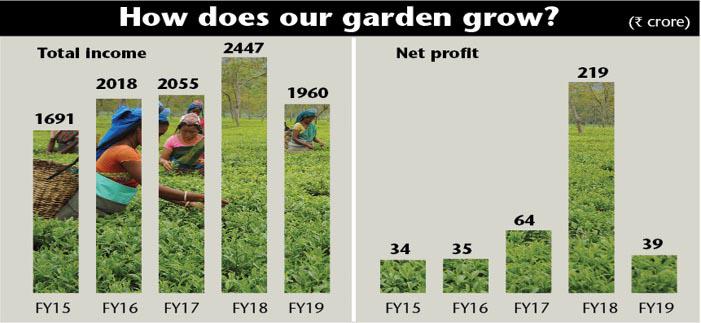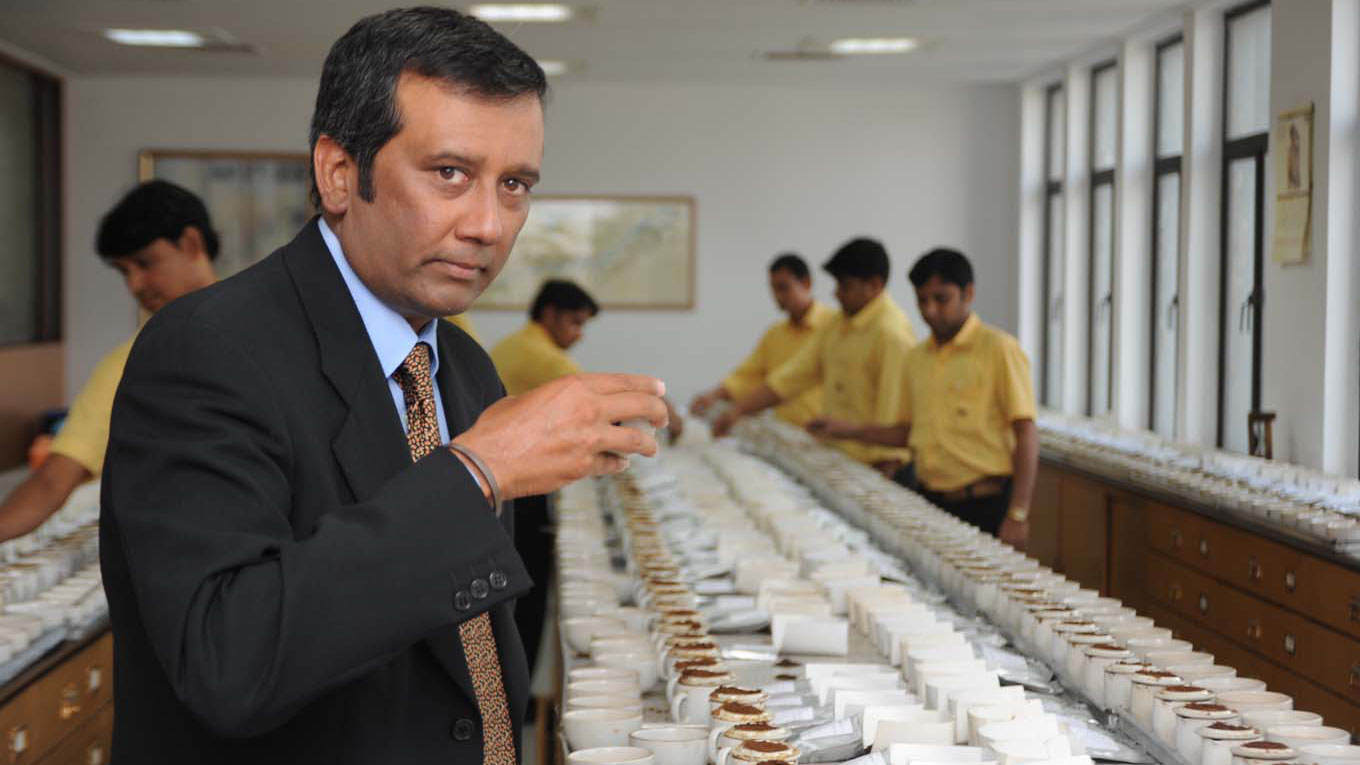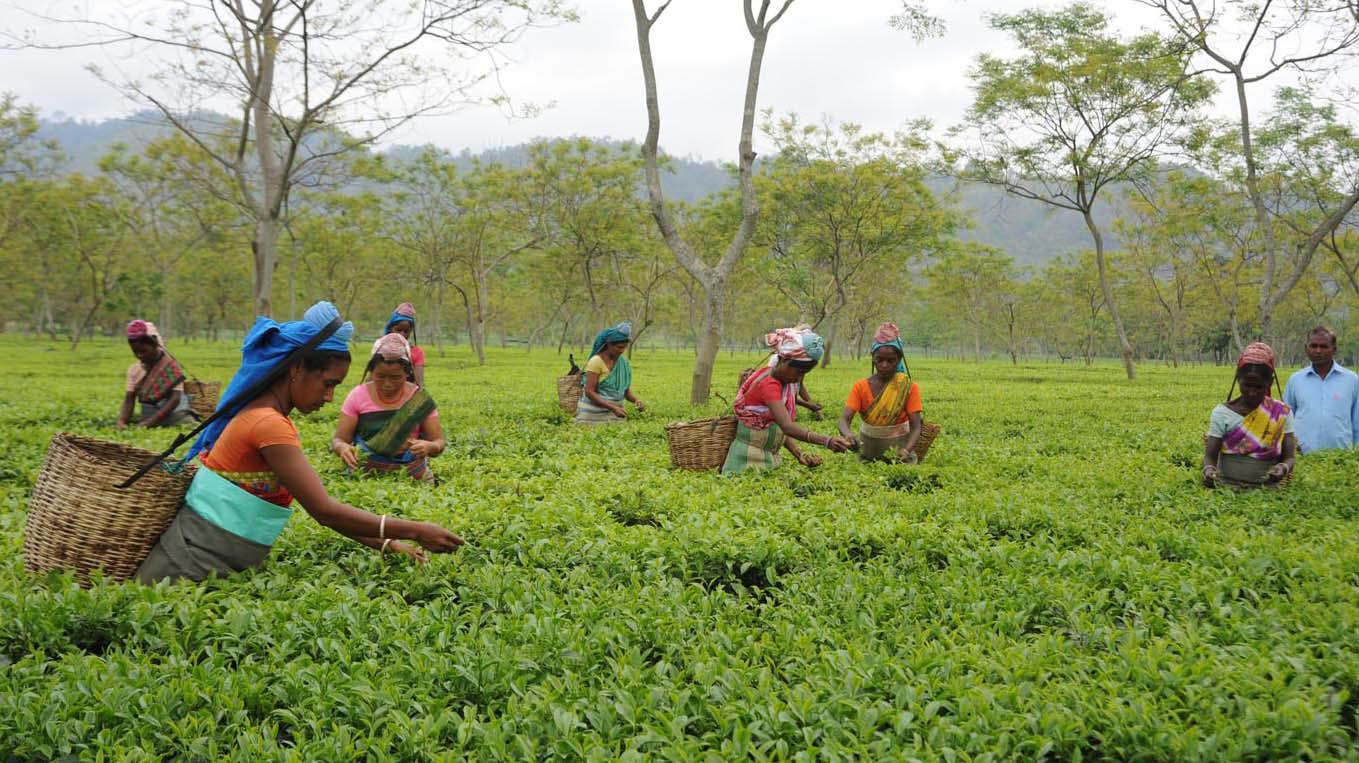-
After the adverse comment on the financial statements of MRIL and McNally, Deloitte had resigned as auditors from both companies
Analysis of McLeod Russel’s consolidated financial reports shows the poor performance in FY19 with total income falling 20 per cent but net profits were dipping 82 per cent indicating that the company was selling its own assets to prop up the cash flow with current ratio of 0.45. Last reported numbers for the quarter ended 31 December, 2019 are also dismal with a loss at Rs19.53 crore as against a profit of Rs53.59 crore a year earlier. The company’s yearly financial results for March 2020 are not yet published. All group companies have high debt in their books. Today McLeod Russel is sitting on a debt pile of over Rs2,000 crore after the asset sale. McNally Bharat had a debt burden estimated to be Rs3,000 crore while Eveready Industries’ debts were around Rs500 crore.
Fund diversion
After the adverse comment on the financial statements of MRIL and McNally, Deloitte had resigned as auditors from both companies. Later MRIL appointed Lodha & Co to fill the vacancy. McNally has hired V Singhi & Associates. “Not only the management but auditors and bankers are also equally responsible for the present crisis,” said Pankaj Singhania, founder, Lake Water Advisors, an equity research firm. He added that the publicly listed MRIL’s shareholders were openly short-changed by funds diversion to group companies.
The main recipient of these funds is McNally Bharat, an engineering company engaged in providing turnkey solutions for power, steel, mines etc. It has reported a loss of Rs308.88 crore on a turnover of Rs564.67 in FY20. The company has an outstanding debt of around Rs3,000 crore. The new auditor of the company V Singhi & Associates also questioned McNally’s ability to continue as a going concern. The promoter Khaitan family borrowed heavily by pledging their shares in MRIL and Eveready to save McNally Bharat which dragged down the entire group.
The tea company began operation in India as part of the Williamson Magor group. It is now with the B.M. Khaitan family since 1960, which also owns Eveready Industries – India’s largest dry cell battery maker, McNally Bharat – the engineering company and dryer and cooler manufacturer and Kilburn Engineering. B.M. Khaitan began as a tea chest and fertiliser supplier to tea companies. His acumen was appreciated in the face of competition from the Bajorias and even Birlas. He died in 2019 as the empire he had created began to collapse. His elder son Deepak had died in 2015. The management of the tea business passed on to younger son Aditya (52) while Deepak’s son Amritanshu (37) took over the reins of Eveready.
After Deepak died, his son Amritanshu became the managing director of Eveready. He told his uncle Aditya, to take a one-time hit and put McNally Bharat up for sale. But Aditya disagreed and kept pumping money without MRIL board’s approval. And in 2016-17 Eveready’s shares were pledged to raise Rs600 crore. Sources say Amritanshu still repents not being able to block the decision, which was taken when the founding patriarch was still alive. Aditya had always been in the shadow of his brother in public and industrial circles and wanted to make a mark of his own and gain prominence.
Dispute over bungalow
A family friend says that BMK was a visionary but his greatest weakness was his family. “Despite some whimsical decision taken by his sons, he never could firmly tell them to stop it,” he says. According to a reliable source he believed the family should stay together and run the business jointly in which each will have equal stake. He made a will for his sprawling Queens Park bungalow to be divided equally among Aditya’s family, Amritanshu’s family and his mother Yashodhara Khaitan.
The group’s cash problem following their buyout of Union Carbide stake is now history given the high interest burden on high-cost borrowing. Buying and selling became the lifeblood of Khaitans. Deepak Khaitan acquired several companies, mostly by way of unrelated diversification, in a bid to grow. They also sold off Standard Batteries and India Foils. Deepak was one of India’s best-known racehorse owners. He cut a suave figure as he moved between race meets at the Royal Calcutta Turf Club. Well mannered and eminently clubbable he was the golf captain at the Royal Calcutta Golf Club. “I found Deepak sometime very whimsical. Selling and buying was more of a gambling for him than running and growing them steadily,” says a former employee, who has seen him closely. He was very good at heart. Many of his acquaintances with vested interests took full advantages of it, claims the person.
-

In MRIL, when the pressure of investors and shareholders intensified with deteriorating performance, mounting debts and alleged inter-company misappropriation of funds, prompted MRIL chairman Aditya Khaitan to admit that it was a mistake at the company’s AGM last year. While replying to shareholders’ queries Aditya said, “There were issues raised as to why did we borrow and lend to some of the other companies. I tell you very clearly that in hindsight today, yes, it was a mistake.”
He also explains why the loan was offered to McNally Bharat. “The company receiving the loan was in serious trouble and we wanted to see whether that company could be turn around in the infra space. We believed that India is a country that will require infrastructure and it is something we felt could be the next business and growth for the group. Unfortunately the time it took to revive and grow has taken a toll on this company and the group,” added Aditya. He also assured that lending to McNally Bharat has stopped and the engineering company will chart its own course to try and bring investors.
Upset with the company’s decision, a former employee of MRIL says, “A business cannot be run on betting. One needs to have acumen to run it.” It is a mystery that despite lending funds continuously for last few years, why Aditya Khaitan, the chairman of McNally, never actively involved in the company? Why he chose to operate with remote control from Mangoe Lane, the MRIL head quarter?
MRIL had sold 19 tea estates in India and Rwanda that produced close to 25 million kg in last two years to pare the debt burden of over Rs900 crore. It is now negotiating with banks for restructuring. But the management is tight-lipped on the process. It may have to sell more gardens. But even with all efforts the situation looks grim.
During the last decade, MRIL acquired a number of tea gardens through a blitzkrieg of expansion. The company adopted a contrarian strategy. In 2005, when Tata Tea and Hindustan Unilever exited tea production to concentrate entirely on marketing of a large suite of beverages, MRIL surprised everyone and started picking up gardens in a bear market. Khaitan’s strategy for tea business emerged when a old family friend and sometime partner Philip Magor sold 18 quality tea gardens of Williamson Assam Tea with a capacity to produce 20 million kg, to Khaitan in 2005. The company also expanded its operation overseas. MRIL became the world’s largest tea producer (104 million kg a year) with 59 gardens in 2010. Today MRIL’s production has come down to less than 25 per cent following the sale of its assets.
“Problem with McLeod is financial, not operational. They are still one of the best producers of tea and command good price,” says Singhania of Lakewater Advisors. Today MRIL continues to be the largest bulk tea producer in the country with a total capacity of 80 million kg from 41 tea gardens in India and overseas. It currently owns 33 gardens in India, five gardens in Uganda, and three gardens and seven factories in Vietnam. Goodricke and Amalgamated Plantations are neck to neck for the second place with around 40 million kg.
Finest quality tea
“The goodwill of the company is intact. Our gardens consistently outperform the industry,” says Azam Monem, director, MRIL who spoke on condition of not to speak on the company’s financial issues. However, he added that the inherent strength would help the company to come out of the present problem. MRIL is export-driven and its factories and growing methods are among the most modern in the business and conform to EU and American standards – no chemical pesticides, no stray germs, vacuum packing, no human handling of the product etc. It still follows a rich tea culture. Gardens’ managers are given a free hand to mange them professionally. It has close to 60,000 workforce.
-

Aditya Khaitan: lending to the group company was a mistake
Former managing director of Goodricke and Trustee and founder of Tea Vision, Arun Kumar Singh says, “MRIL produces finest quality tea in the industry. The company follow all ethical practices and sustainable process in tea manufacturing.” Echoing Singh, a former senior executive of the company says MRIL’s well-kept gardens and its infrastructure created around it, is ahead of the industry.”
When asked whether not venturing into packet tea business is a mistake, Monem says, “Packet tea is a completely different line of business. Some tea producers tried but failed. It needs complete focus and deep pockets to sustain. Only a handful of large players can survive.” Singh says, going forward there will be labour shortage in the tea industry, as the next generation do not want to work in tea gardens. So it is important to explore packet tea as an option and also to look at producing alternative crops in an organised manner – may be for the food processing industry.
As the auditor’s report mentioned about the debt in MRIL, the family had taken a call that they would sell Eveready and retain MRIL. Several MNC battery manufacturers including Duracell showed interest. Last year the group had shortlisted Duracell Inc, owned by Warren Buffett’s Berkshire Hathaway. A person, who had knowledge about the deal, said that the deal was fixed around Rs1,700 crore. Duracell had begun due diligence of Eveready’s battery and flashlight business including the manufacturing plants and distribution network. Unfortunately, when the process was on, BMK died last year.
But after his death, sources inform, a letter had surfaced allegedly written by BMK giving his grandson Amritanshu the entire Queens Park house in lieu of the Eveready sale. Whereas the original will had mentioned the house will be equally divided between the two families. This created an unpleasant situation between uncle and nephew and their families. In the fallout of the inheritance war, uncle Aditya, his wife Kavita and nephew Amritanshu and other members of the family are not on talking terms with allegations made against Amritanshu that he manipulated his ailing grandfather to get the entire bungalow property, according to sources. But the trouble in the family has not come in the open yet.
Backroom politics
Also after the death of B.M. Khaitan, Amritanshu has started spending time at MRIL’s headquarters focusing on the tea business. Aditya’s wife Kavita has allegedly also been actively involved in tea business. A source in the company reveals that Amritanshu was not getting any co-operation and he was kept in the dark on the company’s important decision. In the backrooms, sources say, Amritanshu refused to endorse the decision to sell Eveready and the deal with Duracell fell through. Insiders say that the sale would have been a good boost to the core tea business.
Meanwhile, the Burman family of FMCG major Dabur recently picked up an additional stake of 8.48 per cent in Eveready. It now owns 19.84 per cent shares of Eveready. It is a personal investment of the Burman family. The transactions were made through Guardian Advisor, which manages Burmans’ investment. Eveready promoter Khaitans owns 22 per cent and that too are pledged with financiers against loan. As both are FMCGs, Burman can bring value to Eveready. An analyst says that Eveready is still in a better position than MRIL because its debt is manageable. The Burmans may become strategic partners of Eveready.
However, earlier attempts were made to drag MRIL to NCLT but the company reached an out of court settlement with the disputing creditors. They are now trying to work on restructuring. It is believed that ICICI bank suggested MRIL to sell more gardens and scout for investors. The stock prices of MRIL have plummeted ever since, with market factoring in all aspects. From a high of Rs48.70 per share on 30 November, 2017 to a low of Rs1.85 on 25 March, 2020, MRIL has seen its gradual lows and downsides. The promoters hold 27 per cent of shares of which almost 98 per cent is pledged.
The management is still confident that with the lenders’ support in restructuring their debt and other related cost reductions, and other ameliorative measures taken, the company will be able to generate sufficient cash flow to meet its obligations and strengthen its financial position over a period of time. MRIL assured this in the notes to the third-quarter result in December 2019. In the 9 months period ended in December 2019 MRIL has reported a loss of Rs77 crore on a turnover of Rs953.52 crore as against a net profit of Rs26 crore on a turnover of Rs1,538 crore in the previous corresponding year.
The Khaitans now have two challenges: first, they have to settle family disputes over management, assets and division if needed, and second, to put up a realistic financial rescue package to make sure that the company management is firm and is not taken away from them. While the balance sheet of the company is almost worthless, it nevertheless sits on some of the biggest and best tea growing areas in the world.




































